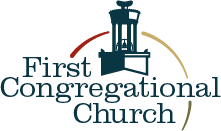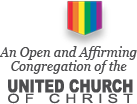“Is this not the fast I choose: to loose the bonds of injustice… to let the oppressed go free, and to break every yoke… to share your bread with the hungry, and bring the homeless poor into your house; when you see the naked, to cover them… Then your light shall break forth like the dawn, and your healing shall spring up quickly… The Lord will guide you continually, and satisfy your needs in parched places, and make your bones strong; and you shall be like a watered garden… whose waters never fail.” (Isaiah 58:6ff.)
February 15, 2012
Dear Friends,
My most memorable Ash Wednesday was the one where I was about as far from church as I could be. Ash Wednesday, 2004, found me kneeling, not in penitence but in pain. That day, I discovered I wasn’t the healthy 38-year-old I thought I was but a cancer patient. Much I believed about myself was about to change. So began one of my most difficult yet meaningful Lenten seasons.
More than once I felt the poignancy of my cancer odyssey beginning on Ash Wednesday.
And I considered the Lenten scriptures in a new light. Some now seemed very personal, such as the above words from Isaiah. I liked hearing God’s promise to guide me as an abiding presence, offering never-failing water to soothe me in my parched place, and making my bones — my leukemia-filled bones! — strong. But I was trying to figure out how I could loose the bonds of injustice, offer food to the hungry, or clothe the naked when I didn’t have strength to get out my Lazy-boy recliner!
Then I recalled those other Ash Wednesday words; God saying, “Remember that you are dust and to dust you shall return,” following Adam’s and Eve’s sin in Eden on account of which all people would know death. Now, the notion that our ancestors’ sin might condemn us all to divine punishment has always seemed incompatible with my belief in God’s supreme goodness and grace. Besides, I don’t tend to think of myself as a particularly sinful person. Yet I do know that I’m imperfect and limited.
That was even clearer to me once I was ill. I felt my brokenness, and was getting to know the humility born of physical limitation, the fragility of life, and the preciousness and precariousness of all I held dear.
Part of Lent’s purpose is to help us acknowledge that we are limited creatures and not the infinite Creator, that we are imperfect and broken in many ways. Thus it offers us a new way… of dark paths illumined, of our gloom lifted, of quenching waters of life in our desert times, and bones, heads, and hearts made strong again. It does this by restoring our proper relationship with God — a relationship not of humiliation but of honest humility in which we know that it is God who gave us life, formed us, and sustains us. Such humility doesn’t crush us but frees us to respond with blessings for others: to appreciate without cynicism, to love without expecting anything in return, to serve without feeling burden, to follow God’s way not as slaves but as those who rejoice in storing up treasures in heaven.
In this Lenten season, may we each know the blessing that comes from acknowledging our
limits — what we can do and be, as well as what we can’t — and know the liberating humility that can restore our deepest humanity as well as our highest divinity.
Peace, Jonathan

